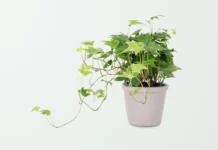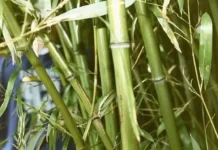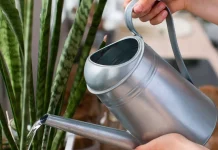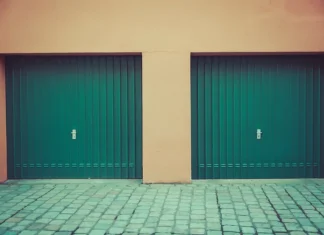If you are someone who loves gardening but you don’t have much land to work with, keeping outside plants in pots may be a great way to do a little gardening. Additionally, it protects your plants against a variety of burrowing insects and other pests that consume plants.
If you’ve been gardening for a while, squirrels and, in certain areas, chipmunks, are surely a problem. They seem to be either interested in eating plants or trying to conceal their food source in flower pots. A squirrel, however, is more durable than any container. To keep squirrels away from your potted plants or even your in-ground outdoor garden, you’ll need to take a few additional precautions.
While it is simple to ignore squirrel management throughout the summer and fall, doing so can swiftly ruin earlier attempts to keep these invasive opportunists in check, especially if you want to keep squirrels away from your valuable potted plants.
Why do squirrels dig into Potted plants?
In order to figure out how to stop squirrels from visiting our potted plants, we first need to understand why they were being drawn to them in the first place. Digging is a favorite activity for squirrels, who use it to store food and nuts for the winter. Your potting soil makes the best hiding place for their caches because it is soft and simple for them to dig.
In addition to digging, squirrels like searching for food. They’ll consume vegetables, fruits, and plant bulbs.
How to keep Squirrels Out of Potted Plants
Utilizing repellent scents, water sprays, and ultrasound are a few natural methods to keep squirrels away from potted plants. Squirrels won’t be hurt or killed by any of these methods, but a combination of methods will deter them. The best methods to prevent squirrels from using potted plants permanently are as follows.
1. Own a dog or a cat
According to Rachel Crow, garden editor for Homes & Gardens, the simplest way to stop squirrels from eating your potted plants is to get a cat or dog. But you’ll need to let them out throughout the day so they can see and scare off squirrels. This alone may be enough to dissuade the rats from destroying your container plants. On vegetable plants and flowerbeds, though, stay away from applying it. To put around your prized plants, you may also try gathering your cat’s litter.
2. Use natural squirrel deterrent spray
A natural deterrent for squirrels attempting to eat your garden plants is the strong smells of black pepper, cayenne pepper, and garlic. Simply mix the parts together with little water and dish soap. Use a spray sprayer to apply the mixture to your plants.
You should also make sure to reapply it after a wet day because the rain will probably wash away the smell. I stopped having squirrel problems after using the product, and I even like the peppermint smell in my garden.
3. Keep the yard neat to deter them.
Squirrels will visit your garden if you set out fruits, seeds, fallen nuts, and acorns. They may also eat everything they come upon in the yard in addition to investigating your home and chewing on potted plants. Therefore, if you want to keep squirrels away from your potted plants, maintain daily yard upkeep. Make careful to put all food scraps and biodegradable items in tightly fitted trash cans.
These squirrel-proof bird feeders should replace your current ones. Squirrels had little issue climbing the feeder poles to get to the bird feeders before the new equipment was put in place. Additionally, squirrels are more likely to show up in your garden since birds frequently disperse seeds.
4. Sacre off
Squirrels are less cautious than some other yard animals, and it might be challenging to drive them away if they get used to people. Other than watching them and chasing them, there aren’t many ways to get rid of squirrels.
One classic is to suspend some pie plates made of foil and let the wind force them to clatter about strangely. Another choice is to install a plastic hawk or owl model on a nearby perch. A squirrel may be discouraged from visiting your container plants due to their predatory behavior.
5. Buy ultrasonic sensors
Many novice gardeners use ultrasonic repellents to keep pests away without altering their yards. Are these ultrasonic devices effective at preventing squirrels? The good news is that high-frequency sound could really be able to keep these pests away, but it’s important to pick a system that is designed to accomplish just that. The majority of ultrasonic devices function by producing noise at a frequency that is detectable to some animals but not to human hearing.
6. Setup physical barriers to keep squirrels sway
One method to stop squirrels from ruining your potted plants is to install physical barriers around them, such as chicken wire fences or chew-proof netting. Thin enough netting or fencing is required to keep squirrels from penetrating microscopic openings.
Additionally, squirrels may attempt to break through your mesh cage if you don’t bury it at least 6 inches deep. We might be alone in this, but don’t like the idea of using wire fences to keep squirrels away from indoor plants since they might seem unsightly.
7. Fertilize your plants with blood meal or bone meal
Yes, we are aware that the words blood meal and bone meal probably cause you and the majority of people to cringe. A sort of fertilizer prepared from dried cow blood is known as a blood meal. Squirrels avoid it because of the strong ammonia smell, and the high nitrogen concentration has a positive effect on plant growth.
8. Use essential oils to disturb squirrels
In addition to being a staple in medicine cabinets, essential oils may be used to keep squirrels out of potted plants.
The common use of essential oils in the formulas of natural over-the-counter squirrel repellents makes it possible to make your own at home, which is not unexpected to hear. Keep essential oils and spices like mint extract, lemongrass, clove, and cinnamon close at hand to stave off squirrels. In a spray bottle, mix one part vinegar with two parts water, one drop of dish soap, and the essential oils.
9. Surround plants with pebbles
An easy method to keep squirrels out of potted plants without creating too much hassle is to cover the pots with large rocks and stones. To prevent a squirrel from readily pushing them aside, make sure the stones you use are too big. Be cautious not to overwater your flower bed or container plants if you want rainfall to fall through or for you to water your leaves as necessary.
Bottom Line
With the above-mentioned ways, we hope that you’re now clear with a query that how to keep squirrels out of potted plants. In case none of these other approaches succeed, you may always employ traps to capture the squirrels. It may be a bit harsh to use deadly traps when there are efficient live-trapping techniques that function rather well in place. Please test them out first.
The neighbor’s cat, for instance, could unintentionally step into the trap; by employing this tactic, you save them death. These traps are often sold at hardware stores and garden centers.
Put one or two there and use whole peanuts or peanut butter to lure the animals toward your potted plants. A squirrel should be taken to a nearby forested area far from your home after being caught, where it should be released. Ideally, the other approaches will work, saving you from having to go through the hassle of trapping.












